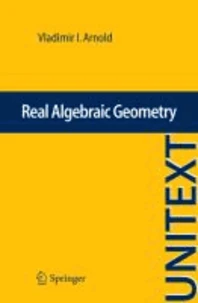"Continued Fractions" takes a common enrichment topic in high school math and pulls it in directions that only a master of mathematics could envision. "Euler Groups" treats a similar enrichment topic, but it is rarely treated with the depth and imagination lavished on it in Arnold's text. He sets it in a mathematical context, bringing to bear numerous tools of the trade and expanding the topic way beyond its usual treatment.
In "Complex Numbers" the context is physics, yet Arnold artfully extracts the mathematical aspects of the discussion in a way that students can understand long before they master the field of quantum mechanics. "Problems for Children 5 to 15 Years Old" must be read as a collection of the author's favorite intellectual morsels. Many are not original, but all are worth thinking about, and each requires the solver to think out of his or her box.
Dmitry Fuchs, a long-term friend and collaborator of Arnold, provided solutions to some of the problems. Readers are of course invited to select their own favorites and construct their own favorite solutions. In reading these essays, one has the sensation of walking along a path that is found to ascend a mountain peak and then being shown a vista whose existence one could never suspect from the ground.
Arnold's style of exposition is unforgiving. The reader—even a professional mathematician—will fend paragraphs that require hours of thought to unscramble, and he or she must have patience with the ellipses of thought and the leaps of reason. These are all part of Arnold's intent. In the interest of fostering a greater awareness and appreciation of mathematics and its connections to other disciplines and everyday life, MSRI and the AMS are publishing books in the Mathematical Circles Library sertes as a service to young people, their parents and teachers, and the mathematics profession.
"Continued Fractions" takes a common enrichment topic in high school math and pulls it in directions that only a master of mathematics could envision. "Euler Groups" treats a similar enrichment topic, but it is rarely treated with the depth and imagination lavished on it in Arnold's text. He sets it in a mathematical context, bringing to bear numerous tools of the trade and expanding the topic way beyond its usual treatment.
In "Complex Numbers" the context is physics, yet Arnold artfully extracts the mathematical aspects of the discussion in a way that students can understand long before they master the field of quantum mechanics. "Problems for Children 5 to 15 Years Old" must be read as a collection of the author's favorite intellectual morsels. Many are not original, but all are worth thinking about, and each requires the solver to think out of his or her box.
Dmitry Fuchs, a long-term friend and collaborator of Arnold, provided solutions to some of the problems. Readers are of course invited to select their own favorites and construct their own favorite solutions. In reading these essays, one has the sensation of walking along a path that is found to ascend a mountain peak and then being shown a vista whose existence one could never suspect from the ground.
Arnold's style of exposition is unforgiving. The reader—even a professional mathematician—will fend paragraphs that require hours of thought to unscramble, and he or she must have patience with the ellipses of thought and the leaps of reason. These are all part of Arnold's intent. In the interest of fostering a greater awareness and appreciation of mathematics and its connections to other disciplines and everyday life, MSRI and the AMS are publishing books in the Mathematical Circles Library sertes as a service to young people, their parents and teachers, and the mathematics profession.
